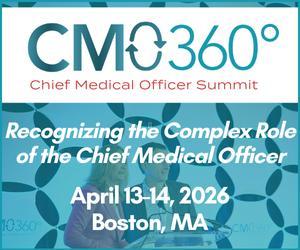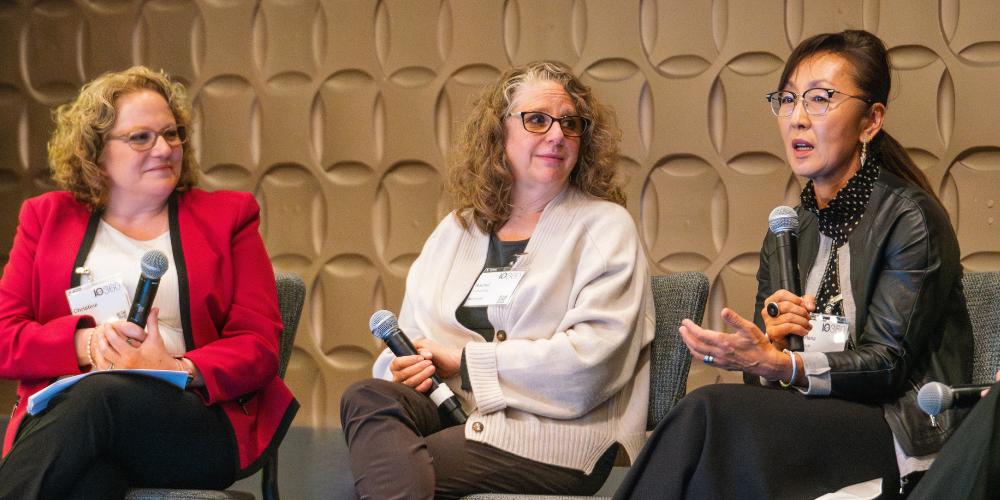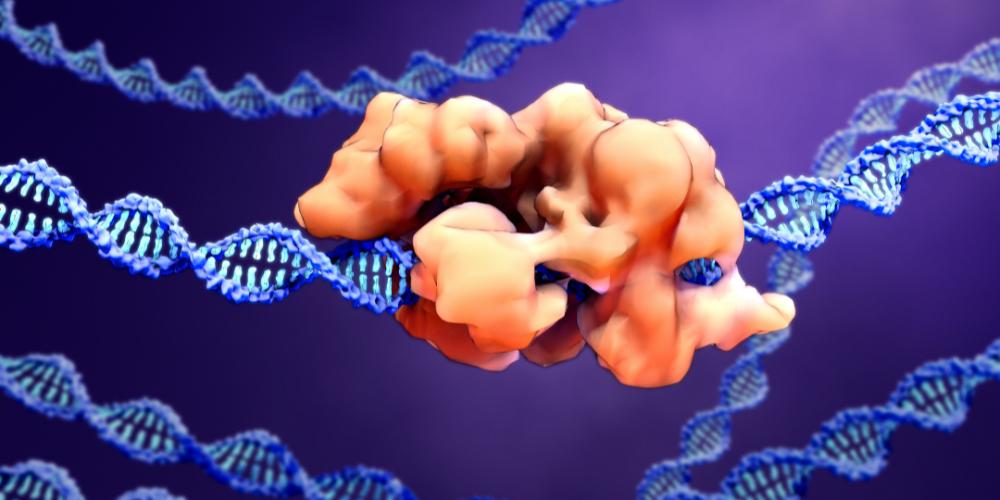
Most companies focus on the adaptive immune system. Why is Bolt going after the innate immune system?
The innate system is the first line of defense that the body has. It’s the immediate response to pathogens that may include viruses, bacterias, or portions of proteins that the body recognizes as foreign, as well as macrophages and dendritic cells.
The faster we can start activating the immune system via innate immunity, the better it would be in theory for patients. It allows time for the adaptive immune system to learn, ultimately leading to long-term immunological memory.
How are you doing this?
We are leveraging the immune system for a better way to treat cancer. Our technology teaches the immune system to recognize and kill cancer in a way that is immediately personalized to each patient’s tumor. Our technology enables local activation of the innate immune system which generates a durable tumor-targeted adaptive immune response. By activating and recruiting myeloid cells, our Boltbody™ ISACs re-program the tumor microenvironment to invoke a new anti-tumor immune response.
Essentially, we are creating an off-the-shelf way to stimulate T cells. For CAR T, you have to incubate to teach the T cells how to attack a particular set of proteins. With our technology, we bring the stimulation of the innate immune system at the site of the tumor. Then, we can teach T cells to react not only to one protein or two proteins, but to react to many of the proteins in the cancer. That creates not only immunological memory, but also epitope spread.
By going to the site of the tumor, we’re activating the innate immune system and harnessing its power while minimizing systemic toxicities. At the same time, this approach engages the ultimate activation of T cells so that the T cells can learn how to fight cancer. The T cells then remain circulating in the lymph nodes, with the immunological memory to prevent further tumor recurrence.
"By going to the site of the tumor, we’re activating the innate immune system and harnessing its power while minimizing systemic toxicities."
What would this look like in practice?
For example, let's say that the agent that we have in the clinic is against HER2. That HER2 monoclonal antibody is conjugated to an activator of the innate immune system, which in our case at Bolt includes toll-like receptors 7 and 8. Theoretically, we're bringing this activation of the immune system to a tumor that overexpressed HER2, but because we're bringing the immune cells right there, they learn to attack HER2 as well as other foreign proteins in the tumor. This helps create a broader approach to immunological memory compared to many of the currently existing technologies.
What is the follow-on impact if your approach is successful?
Ultimately our goal is to not only modulate the immune system in a targeted way for patients with advanced cancers, but the potential to expand to patients with earlier stage disease.
If our technology proves to be as successful as we anticipate, this therapy could be applied to patients with early-stage tumors in which we can modulate the immune system early. That way, even if the tumor has to be resected, we have the ability to teach the adaptive immune system to decrease the risk of tumor recurrence.
"Research can be done in multiple different arenas – private practice, academia, etc. – but the work we do in biopharma can impact millions of people."
What’s the importance of TLRs and how are you using them for immune stimulation?
TLRs are part of pattern recognition receptors in cells. They are there to essentially seek out abnormalities in the cells’ microenvironment. One of the reasons we are focusing on TLRs is because we want the innate immune system to promptly react to cancer-related nucleic acids as early as possible. We’re focusing our work on understanding and modulating the expression of some of these TLR receptors in different tumors.
Our work goes beyond TLRs because we're also very interested in modulating tumor-associated macrophages. For the modulation of TLR7 and TLR8, we are developing immune stimulating antibody conjugates (ISACs). For the modulation of tumor-associated macrophages, we have a specific antibody targeting dectin-2 that helps reprogram tumor-associated macrophages from tumor-permissive to tumor-killing.
Are there specific modalities or pathways you’re interested in for the future of immuno-oncology?
Yes. One is the modulating tumor-associated macrophages. Another is the potential to do further modulation of tumor-infiltrating lymphocytes. And finally, the activation of toll-like receptors will be very important because I think it has the potential to yield significant progress in the field.
I believe that we are all doing important work, but it’s relevant that we pay attention to the work being done by others, to learn and impact one another. It’s why, to me, participating in meetings like IO360º is so important.
What made you interested in immuno-oncology?
When I joined Mayo Clinic, the industry didn't have many ways to modulate the immune system. Over the years, we learned more about biology and the potential impact of modulating the immune system. It’s been a stepwise approach, following the science to have a broader impact on patients’ lives.
At the beginning of my career, I was focused on finding better chemotherapy drugs and ways to modulate emesis. This evolved into more biomarker and translational work, with the evolution to modulating the immune system to kill cancer being a logical area of focus.
"Our technology teaches the immune system to recognize and kill cancer in a way that is immediately personalized to each patient’s tumor."
What maintains your passion for science and being a CMO?
It’s very challenging, engaging and inspirational to serve as Bolt’s CMO. We have great science, great people, and a strategy to explore how to translate new science into potential therapeutic improvements for patients with cancer. I am humbled by the opportunity to lead and support our team and our company. My responsibilities as a member of our C-suite team include biometrics, regulatory, clinical development, clinical operations, pharmacovigilance, development science, and translational medicine. Being a CMO is encompassing and fun.
My interest in science started when I was a very little girl and my parents gave me a microscope for Christmas. I became interested in science at that moment. That interest then extended to mathematics. However, I decided to go to medical school instead of being a mathematician because of the ability to connect and help people. Medical school then led to specialty fellowship training in hematology and oncology, which evolved into positions developing and leading/collaborating in translational trials at the national and global level in the context of my academic career at Mayo Clinic. Then came the decision to move to biopharma as a way to have a different and even bigger potential impact on patients’ lives.
You are a champion for health equity and inclusion and access. How have you incorporated this into your career journey?
I’m fully committed to this work, in the context of evaluating novel diagnostic and therapeutic strategies. As part of my collaborative work regarding health equity, I'm focused on the inclusive participation of individuals in screening, clinical trials and treatment, as well as improving access through education.
I have had opportunities to be involved in health equity initiatives at Mayo Clinic, ASCO, AACR, and Stand Up to Cancer. I’ve participated in several committees sponsored by the National Academies to increase representation of traditionally underserved populations in clinical trials. So I'm very happy to have had the pleasure to think about this challenge over the years, and work with amazing people who are trying to make a difference.
While there’s still work to be done, it’s important to acknowledge that drug development and research strategies have improved over the years including new policies and procedures to ensure a high degree of ethics in the context of clinical trials.
Do you have career advice for young women entering science careers?
Happiness should be the focus: about oneself, about the ability to utilize our skills, about the ability to make a difference in the lives of others. Medicine is a fabulous career, and participating in research is important.
Research can be done in multiple different arenas – private practice, academia, etc. – but the work we do in biopharma can impact millions of people, and that's one of the reasons I eventually moved from being an academician at Mayo Clinic to the biopharma industry.










